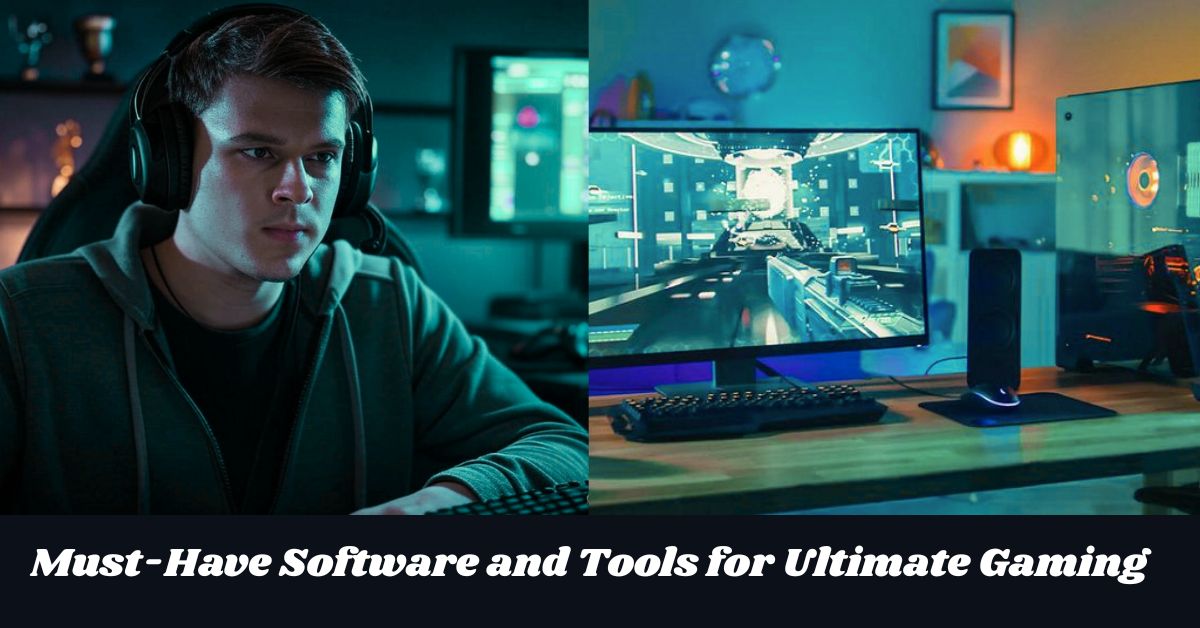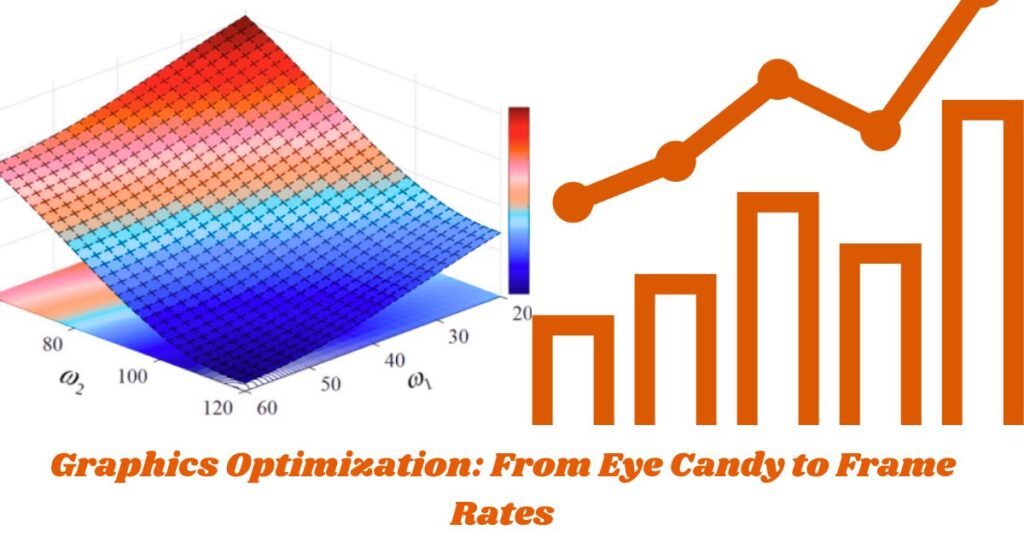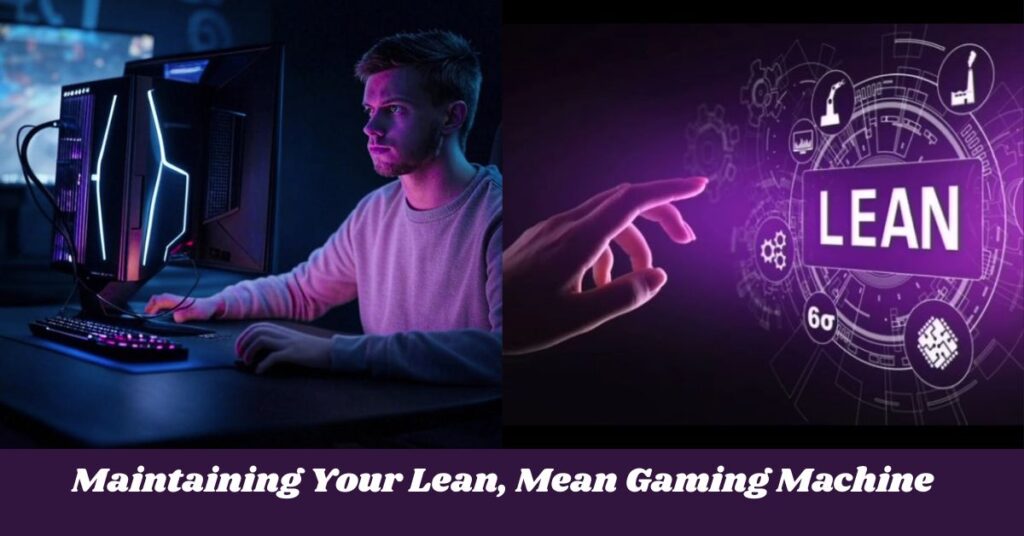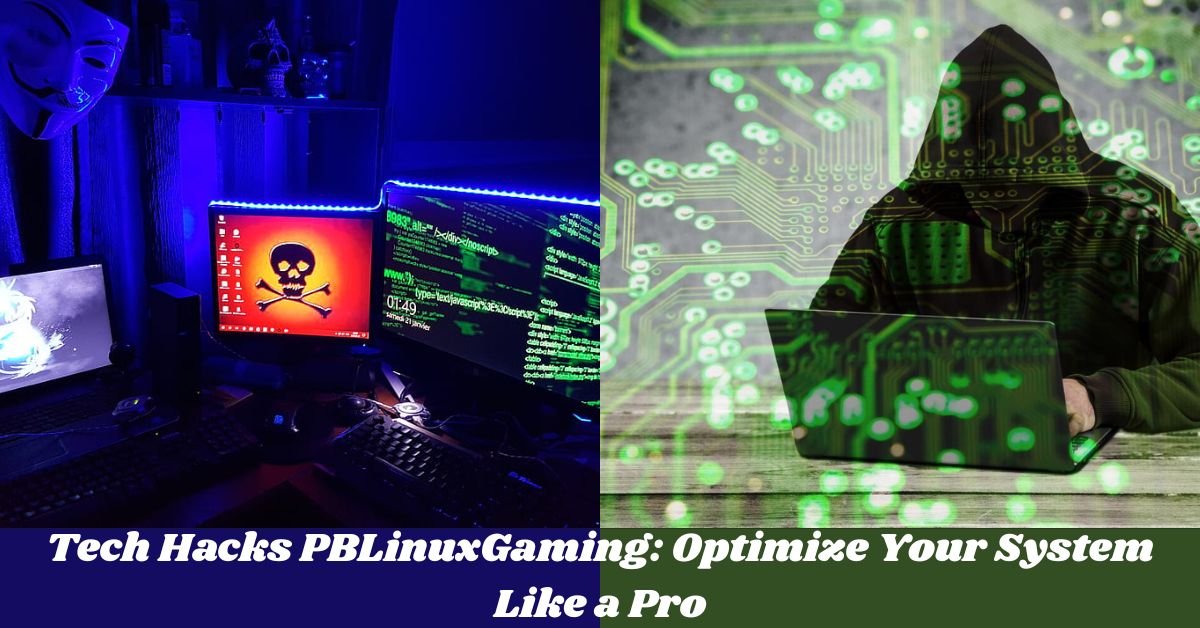Linux gaming has evolved tremendously over the past few years. Gaming on Linux used to be a difficult endeavor. Now it’s becoming a viable alternative to Windows. The key to success lies in proper system optimization.
PB Linux Gaming offers a project-based approach to gaming excellence. Every gamer can transform their Linux machine into a gaming powerhouse. Let’s explore the essential tech hacks that will revolutionize your Linux gaming experience.
What Are Tech Hacks PBLinuxGaming?
Tech Hacks PBLinuxGaming represents a comprehensive approach to Linux gaming optimization. The “PB” stands for Project-Based. It’s not just about playing games on Linux.
It’s about creating a custom-tailored gaming environment. These techniques help overcome common Linux gaming challenges. They maximize your system’s potential for gaming.
- Tech Hacks PBLinuxGaming focuses on active problem-solving rather than passive consumption
- Each hack builds upon your personal gaming needs and hardware specifications
- The project-based approach encourages continuous improvement of your gaming setup
- These optimizations touch every aspect of your system from kernel to graphics
- PB Linux Gaming transforms ordinary Linux installations into dedicated gaming machines
The beauty of Tech Hacks PBLinuxGaming lies in its flexibility. No two gaming setups are exactly alike. Every game has different requirements. Each piece of hardware responds differently to optimizations.
The project-based approach accommodates these variables. It provides a framework for ongoing system refinement.
Choosing the Perfect Linux Distro for Gaming Excellence
Your choice of Linux distribution forms the foundation of your gaming experience. Some distros offer better gaming support out of the box.
Others provide greater customization potential. The right choice depends on your experience level and specific needs.
- Pop! OS comes pre-configured with NVIDIA drivers for seamless gaming
- Manjaro provides rolling updates ensuring access to the latest gaming innovations
- Ubuntu GamePack includes essential gaming tools pre-installed
- The Nobara Project offers Fedora-based gaming with performance tweaks already applied
- Garuda Linux delivers an Arch-based experience with gaming optimizations
Each distribution offers unique advantages for Linux gaming optimization. Pop! _OS simplifies GPU driver installation. Manjaro keeps you on the cutting edge.
Ubuntu GamePack focuses on accessibility. The Nobara Project emphasizes performance. Garuda Linux maximizes customization options.
The best distro also depends on your hardware configuration. NVIDIA users might prefer Pop!_OS. AMD users often find better support in Manjaro.
Consider your system specifications when making this crucial decision. The right distribution creates a solid foundation for your gaming endeavors.
Must-Have Software and Tools for Ultimate Gaming
Proper tools transform your Linux system into a gaming powerhouse. These applications bridge compatibility gaps. They enhance performance monitoring.
They streamline game installation and management. The right toolkit makes Linux gaming seamless.

- Steam with Proton enables thousands of Windows games to run on Linux
- Lutris provides a unified platform for managing games from various sources
- Wine/Proton-GE offers enhanced Windows compatibility for non-Steam games
- GameMode automatically optimizes system settings during gameplay
- MangoHud displays real-time performance metrics while gaming
These tools form the backbone of a well-optimized Linux gaming setup. Steam with Proton revolutionized Linux gaming compatibility. Lutris simplifies game library management across platforms.
Wine/Proton-GE extends compatibility even further. GameMode handles automatic optimization. MangoHud provides essential monitoring capabilities.
Additional utilities further enhance your gaming arsenal. Feral Interactive’s GameMode boosts CPU performance. GOverlay simplifies MangoHud configuration.
ProtonUp-Qt facilitates Proton-GE installation. Each tool addresses specific gaming needs. Together they create a seamless gaming ecosystem.
System Tweaks to Unleash Maximum Power
System-level adjustments dramatically improve gaming performance. These tweaks optimize how Linux handles resources.
They prioritize gaming applications. They reduce system latency. The right configurations unlock your hardware’s full potential.
- Set CPU governor to “performance” for maximum processing power
- Adjust swappiness to prevent RAM-disk swapping during gameplay
- Enable Fsync/Esync for improved game synchronization
- Implement custom I/O schedulers for faster disk response
- Use gamemode service for automatic system optimization
Kernel modifications further enhance gaming performance. The zen kernel reduces latency for competitive gaming. Low-latency kernels improve input responsiveness. Custom compilation options optimize for specific hardware.
Kernel parameters fine-tune memory allocation. These adjustments create a gaming-optimized foundation.
RAM and storage optimizations also prove crucial. Enable zRAM for better memory compression. Use tmpfs for frequently accessed game files. Configure file system parameters for gaming workloads.
Optimize disk mounting options. These tweaks ensure your storage system keeps pace with gaming demands.
READ THIS BLOG: Capitalizing on Ambition: A Holistic View of Business Loans and Prosperity
Overclocking: Pushing Your Hardware to New Limits
Overclocking extracts additional performance from your hardware. It increases processing speeds beyond factory settings.
Linux provides powerful overclocking tools. With proper technique, significant performance gains become possible. Careful monitoring prevents system damage.
- Use CoreCtrl for AMD GPU overclocking on Linux
- Apply GreenWithEnvy for NVIDIA overclocking capabilities
- Implement CPU frequency scaling for processor overclocking
- Monitor temperatures closely with sensors or MangoHud
- Create custom overclocking profiles for different games
Safe overclocking requires proper precautions. Start with small incremental adjustments. Stress test after each change. Monitor temperatures constantly.
Ensure adequate cooling solutions. Understand your hardware’s specific limitations. These practices prevent damage while maximizing performance gains.
Performance improvements vary by hardware. Older GPUs often benefit most from overclocking. Modern CPUs may offer smaller gains. Memory overclocking improves loading times.
GPU overclocking increases frame rates. CPU overclocking reduces processing bottlenecks. The results directly enhance your gaming experience.
Graphics Optimization: From Eye Candy to Frame Rates
Graphics settings balance visual quality with performance. The right configuration ensures smooth gameplay.
Linux offers unique graphics optimization opportunities. Proper driver selection proves essential. API choices significantly impact performance.

- Install proprietary drivers for maximum GPU performance
- Enable Vulkan API support for compatible games
- Configure shader caching to reduce stuttering
- Adjust compositor settings to reduce display latency
- Use FSR/DLSS upscaling for performance boosts at higher resolutions
Driver selection dramatically affects gaming performance. NVIDIA proprietary drivers offer superior performance. AMD’s AMDGPU-PRO combines open-source and proprietary elements.
Open-source drivers provide better system integration. Proprietary options unlock full hardware capabilities. Choose based on your specific GPU and needs.
Graphics API selection also impacts performance. Vulkan delivers superior performance on supported games. OpenGL offers wider compatibility.
DXVK translates DirectX calls to Vulkan efficiently. VKD3D handles DirectX 12 translation. The right API choice depends on each game’s specific requirements.
Solving Game Compatibility Problems Like a Pro
Compatibility challenges occasionally arise in Linux gaming. Systematic troubleshooting resolves most issues. Community resources provide valuable guidance.
With the right approach, almost any game can run successfully. Persistence yields remarkable results.
- Check ProtonDB for game-specific compatibility information
- Try different Proton versions when encountering issues
- Use Winetricks to install missing Windows dependencies
- Apply custom launch parameters to address specific problems
- Create isolated Wine prefixes for problematic titles
Diagnosing common issues follows a systematic process. Verify system requirements first. Check for missing dependencies. Review log files for errors.
Test with different compatibility layers. Consult community resources. This methodical approach resolves most compatibility challenges.
Advanced troubleshooting techniques handle stubborn problems. Custom Wine configurations address specific game needs. Environment variables modify program behavior. DLL overrides replace problematic libraries.
Registry modifications correct Windows-specific issues. These techniques expand compatibility to even the most challenging titles.
Tapping Into the PBLinuxGaming Community
The Linux gaming community provides invaluable support. Collective knowledge solves complex problems.
Shared experiences guide newcomers. Community resources accelerate your learning curve. Active participation enhances your gaming journey.
- Join the /r/linux gaming subreddit for daily discussions
- Contribute to ProtonDB by reporting your game experiences
- Participate in Discord servers dedicated to Linux gaming
- Follow YouTube channels focused on Linux gaming tutorials
- Engage with distribution-specific forums for targeted help
Community resources provide comprehensive information. GamingOnLinux covers Linux gaming news. The Arch Wiki documents advanced configurations.
ProtonDB catalogs game compatibility. Lutris forums share script improvements. These resources form a knowledge network supporting all Linux gamers.
Contributing back strengthens the community. Report bugs to developers. Share successful configurations. Help newcomers solve problems.
Create scripts and tools. Document your discoveries. These contributions accelerate Linux gaming advancement for everyone.
Maintaining Your Lean, Mean Gaming Machine
Ongoing maintenance ensures optimal performance. Regular updates incorporate improvements.
System monitoring prevents problems. Periodic optimization refreshes your setup. These practices preserve your gaming edge.

- Perform regular driver updates for security and performance
- Monitor system temperatures during extended gaming sessions
- Clean up shader caches to prevent bloat
- Update Proton/Wine versions for compatibility improvements
- Review and adjust system tweaks as your needs evolve
Performance monitoring identifies emerging issues. MangoHud graphs performance trends. Log analysis catches recurring problems.
Temperature monitoring prevents thermal throttling. Resource usage tracking identifies bottlenecks. These practices ensure consistent gaming performance.
System hygiene maintains peak efficiency. Remove unused game files. Clear temporary caches regularly. Update gaming tools and libraries.
Defragment game partitions when needed. These maintenance tasks prevent performance degradation over time.
ALSO READ THIS BLOG: Fibertel Onthisveryspot: Revolutionizing Internet Access with Unmatched Speed and Reliability
Frequently Asked Questions
What makes Linux viable for gaming now?
Recent advancements in Proton compatibility, Vulkan API support, and gaming-focused distributions have dramatically improved Linux gaming performance and compatibility.
Do I need special hardware for Linux gaming?
Most modern hardware works, but NVIDIA GPUs with proprietary drivers and AMD processors typically provide the best Linux gaming experience with fewer compatibility issues.
Can I play my Windows games on Linux?
Yes, through Steam’s Proton, Lutris, and Wine, approximately 80% of popular Windows games now run well on properly configured Linux systems.
Will gaming affect my Linux system’s stability?
With proper configuration, Linux gaming is highly stable and often performs better than Windows since you can fine-tune system parameters specifically for gaming.
How difficult is setting up Linux for gaming?
Initial setup requires more configuration than Windows, but once optimized, Linux gaming offers comparable or better performance with greater customization options.
conclusion
Tech Hacks PBLinuxGaming transforms the Linux gaming experience through its project-based approach to system optimization. With properly configured drivers, kernel tweaks, and compatibility tools, Linux gaming performance now rivals or exceeds Windows in many cases.
The open-source nature allows for customizations impossible on other platforms, creating a tailored experience for each user. The community-driven ecosystem ensures continuous advancement, while your growing technical skills enhance both gaming enjoyment and Linux proficiency.
What begins as gaming optimization ultimately becomes a rewarding journey of technological self-determination.

Jerry is a seasoned SEO expert with a passion for content writing, keyword research, and web development. He combines technical expertise with creative strategies to deliver exceptional digital solutions.










